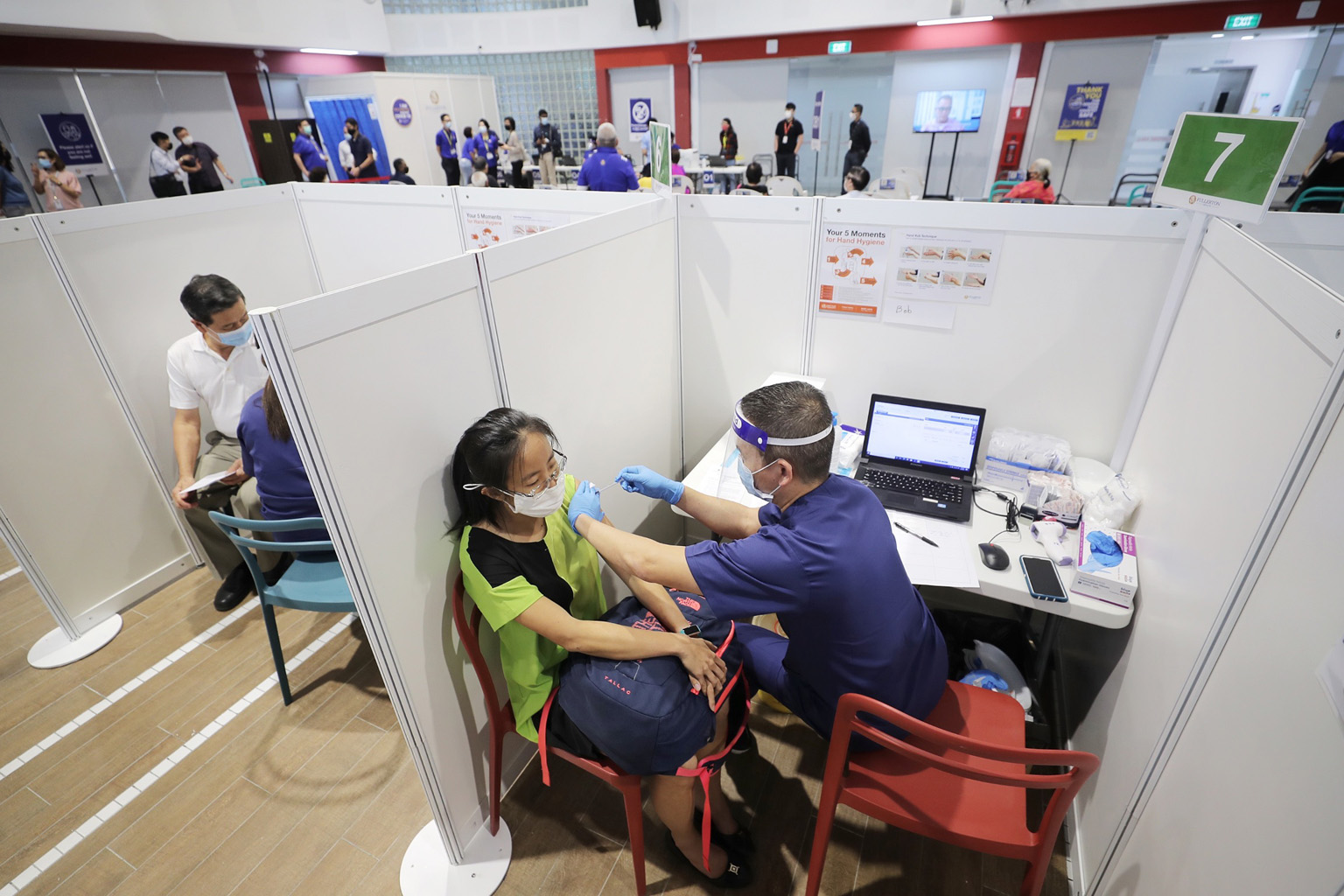Global Covid-19 herd immunity may take nearly 5 years, new data suggests
Sign up now: Get ST's newsletters delivered to your inbox

In Singapore, over 250,000 people have received the first dose of the vaccine.
ST PHOTO: GAVIN FOO
SINGAPORE - Three months after a 91-year old woman in Britain became the first person to receive the Covid-19 injection, more than 236 million doses have been administered worldwide. The pace of history's biggest vaccination exercise is picking up exponentially, but at current rates, it could still be almost five years before most of the world get their shots.
It will take 4.6 years to cover 75 per cent of the world's population with a two-dose vaccine, according to data collected by Bloomberg as at Sunday (Feb 28). Recent estimates suggest that 70 per cent to 90 per cent of the world's population will have to be inoculated before it approaches herd immunity.
With more people getting vaccinated, experts will soon have a better idea of how current vaccines can reduce or prevent infections and transmissions.
Information, such as how long the immunity from vaccinations lasts and how effective they are in curbing the spread of the virus, will shape how countries are able to reopen economies and save livelihoods.
"At present, there is only preliminary and anecdotal data about the effectiveness of Covid-19 vaccines to protect against transmission, but I anticipate this is an area where the science will be much more mature in another one or two months," said Professor Teo Yik Ying, dean of the National University of Singapore Saw Swee Hock School of Public Health.
"When this data does emerge and is consistently validated across a number of countries with large-scale population vaccination, I do expect Singapore will review our existing measures, including border control restrictions, such that those who have been vaccinated will actually have less restrictions in terms of movement and activity."
In Singapore, with close to 60,000 infections and 29 deaths to date, over 250,000 people have received the first dose, and the vaccination programme is being accelerated by the day.
By the end of next month, 40 vaccination centres will be in operation, with each planned for an estimated capacity of 2,000 jabs daily.
In the United States, the world's hardest-hit country with some 29 million infections, 72.8 million doses have been administered.
Meanwhile, Israel has been the quickest off the mark in vaccinating its people since December last year, with over half of its 9.3 million population receiving at least one shot of the vaccine.
Early reports show that Covid-19 cases there have fallen significantly among those who were vaccinated. The time needed to vaccinate three in four of the world's population should lessen as the pace of vaccinations gains speed and more vaccine candidates are approved.
Last weekend, for instance, Johnson & Johnson's single-dose Covid-19 vaccine was approved for emergency use in the US for people aged 18 and older.
According to the World Health Organisation (WHO), as at Feb 18, at least seven different vaccines across three platforms have been rolled out in countries.
At the same time, more than 200 additional vaccine candidates are in development, of which more than 60 are in clinical development.
Countries are trying to convince their people to take the jabs while new variants of the virus emerge and the level of immunity afforded by various vaccines remains unclear.
Despite best efforts though, experts caution that life will not go back to normal this year, and that measures such as mask-wearing and heightened hygiene must be maintained.
Advanced economies are likely to be able to acquire enough vaccines to vaccinate most of their people by the end of the year.
But the rest of the world will not be able to inoculate enough in the population to achieve herd immunity, mainly due to a shortage of vaccine supply, said Prof Teo.
WHO's chief scientist Soumya Swaminathan said at a briefing in January: "Even as vaccines start protecting the most vulnerable, we're not going to achieve any levels of population immunity or herd immunity in 2021."


